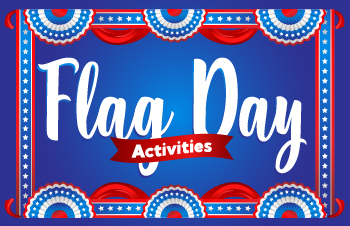Verbal Learning Style
The verbal-linguistic learning style is often confused with the auditory learning style. However, while they do share some similarities, they are two entirely different styles of learning. Verbal learners learn best through the words they hear as opposed to just hearing in general which is how auditory learners best learn.
On this page, you’ll learn about the characteristics of verbal learners, discover study tips to help them succeed and more! Use the links below to jump to the section you want to read about first.
What Are the Linguistic Learner’s Characteristics?
Verbal-linguistic learners love both written and spoken word. They are naturally drawn to language in general, which means there are plenty of opportunities to learn. Below are some of the characteristics of linguistic learners:
- Have a fascination with words and tend to learn new words easily.
- Usually possess a rich vocabulary.
- Tend to flourish in reading and writing activities.
- Tend to enjoy games that involve word play such as Scrabble, Boggle and crossword puzzles.
- Often gifted at learning new languages.
- May have difficulty spelling or visualizing information.
- Tend to ask questions frequently and have excellent verbal expression.
- Enjoy reading, whether it’s to themselves or to others.
- Dislike silence and enjoy participating in study groups.
- Tend to do better with word problems in math as opposed to equations.
- Enjoy talking about what they read, and easily remembers quotes, puns and rhymes.
Study Tips for Verbal Learners
Verbal learners acquire knowledge best through written and spoken words. In order to help a linguistic learner succeed in their studies, it’s important to take advantage of their unique strengths. Below are some study tips for verbal learners to help you get started:
- Be sure to offer instruction in writing and verbally rather than visually, since verbal learners will most likely struggle with pictures or diagrams.
- Read books out loud and have your child read them back to you or others as well.
- Refrain from using a monotone voice so that verbal learners will be able to grasp information, which is the most important part of learning. Try to use different voices and characters.
- Make a list of new words every day along with their sounds and meanings.
- Use mnemonics, such as PEMDAS, to help students understand concepts.
- Establishing a rhythm while reading or speaking out loud helps to increase memorization capabilities.
- Give students written materials for editing to boost their learning. These learners appreciate the complexities of word and sentence structure.
- A verbal student will perform better when asked to write about a scientific topic rather than draw it.
- Assign book reports, scripts to memorize and perform, word problems in math, and debates to your verbal learner to get the most engagement possible.
- Allowing your student to write his or her own stories can also be a tremendous learning opportunity for verbal learners.
- Ask your child to create a story of the ages – perhaps combining science and history to create a tale of Albert Einstein’s greatest inventions based on topics they’ve learned recently.
- Try educational games to engage your student. Verbal learners do well with Boggle, Scrabble, crosswords, or even word searches. Add some friendly competition into the mix and your child won’t even notice they are learning.
- Incorporate written projects as often as possible.
Verbal and auditory learning styles have some crossover as mentioned in the introduction. The opportunities for engagement in our auditory learning style page can certainly be applied to your verbal learning student. For studying, have your child recite facts into a voice recorder and play it back as study material later on. Feel free to give students the opportunity to think out loud, which can help them process complex information.
How Time4Learning Works for Verbal Learners
One of the greatest benefits of linguistic learning is the ability to communicate. We use speech every day, and this is one of the things that connects us to the rest of the world. Students who prefer the linguistic learning style are always interested in improving their communication skills.
Time4Learning is an online curriculum that works well for linguistic learners because of how our lessons are presented. Our innovative homeschool program fosters analytical and critical thinking skills while keeping students highly engaged. Below are just a few reasons why Time4Learning works well with the verbal-linguistic learning style:
- Lessons are supported by videos with plenty of sounds, different voices, and oftentimes music to provide ample opportunities to learn from spoken word.
- Instructional videos lay out step-by-step instruction for subjects such as math, while material for younger students is usually read aloud.
- We also offer plenty of worksheets for those interested in written word activities. Our worksheets allow students to take what they have learned from spoken word and put it into written word, a process which ensures educational success.
- We offer unit study supplements which allow students to read fun and interesting information on states and presidents, among other topics.
- We offer fun and educational games that are sure to get verbal learners motivated and eager to learn more.
- Our program is always helping students learn something new, whether it’s a foreign language, a new skill or subject which keeps your child’s brain active and healthy.
Sign up for Time4Learning and gain access to a variety of educational materials, which will engage and challenge your child to succeed. Make Time4Learning a part of your educational resource toolbox for teaching your linguistic learner.






